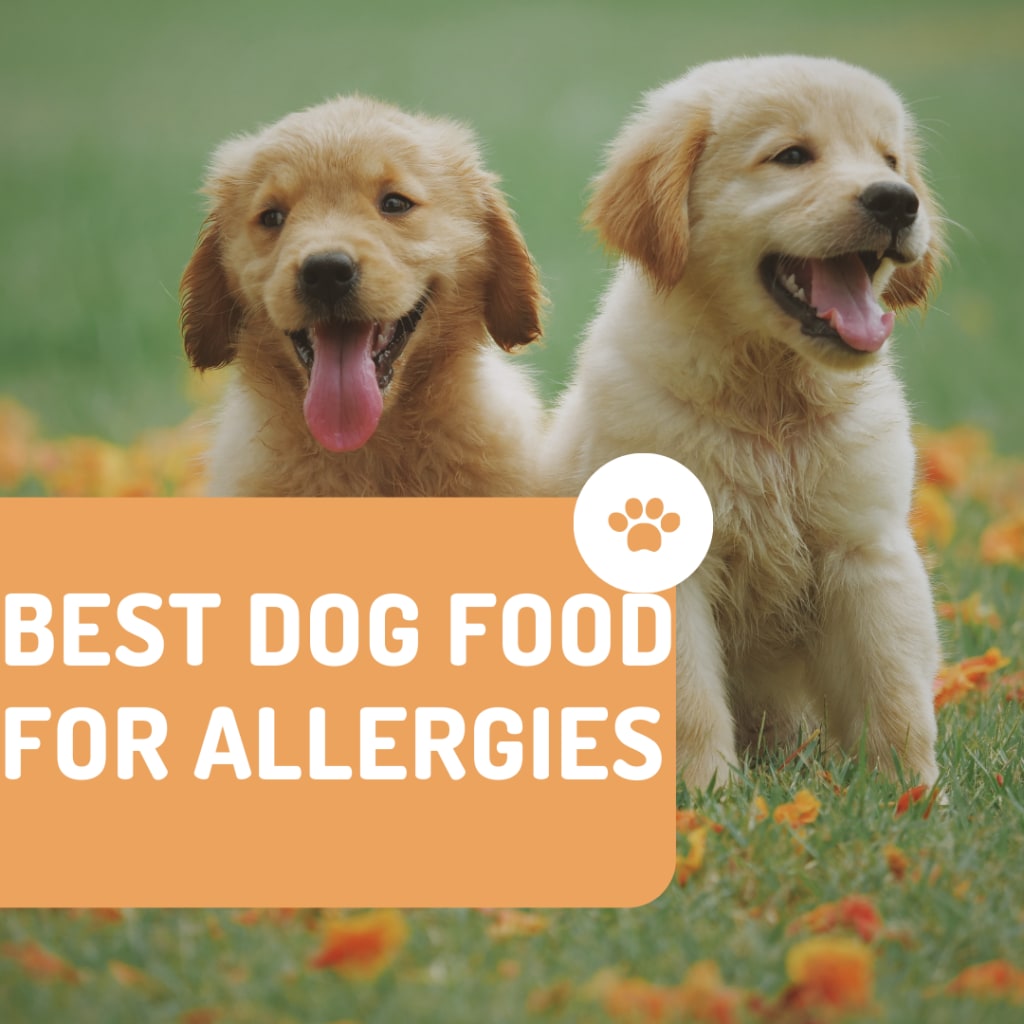Best Allergy Dog Food
Best dog food for allergies

Here are a few point by point instructional exercises on choosing the best canine nourishment for sensitivities:
Talk with Your Veterinarian:
Plan a meeting with your veterinarian to examine your canine's side effects and decide whether they have food sensitivities or awarenesses.
Heed their direction on the most proficient method to continue, as they can give explicit proposals customized to your canine's necessities.
Direct a Disposal Diet:
An end diet includes taking care of your canine an original protein and starch source that they haven't consumed previously.
Begin by choosing a protein source your canine has never had, like venison or duck, and a sugar source like yam or peas.
Feed your canine solely this restricted fixing diet for around 8-12 weeks.
Screen your canine's reaction during this period and note any enhancements or changes in side effects.
Peruse Fixing Marks:
While choosing business canine food, painstakingly read the fixing marks to guarantee they match the necessities of an end diet or a restricted fixing diet.
Search for top notch canine food varieties with restricted fixings and without normal allergens like wheat, corn, soy, fake added substances, and additives.
Look into elective fixing names to guarantee you're staying away from any likely allergens.
Consider Without grain Choices:
While grains are not ordinarily a typical allergen for canines, some might have responsive qualities.
Assuming your veterinarian proposes staying away from grains, search for without grain canine food sources that utilization elective sugar sources like potatoes, lentils, or peas.
Hydrolyzed Protein Diets:
On the off chance that your canine has serious sensitivities or various food responsive qualities, your vet might suggest a hydrolyzed protein diet.
These weight control plans contain proteins that have been separated into more modest particles, diminishing the probability of a hypersensitive reaction.
Adhere to your vet's guidelines on taking care of and changing your canine to this specific eating regimen.
Remedy Diets:
At times, your veterinarian might recommend a particular hypoallergenic diet formed for canines with sensitivities.
These eating regimens are accessible by remedy and are intended to limit the gamble of hypersensitive responses.
Follow your vet's proposals for taking care of and screen your canine's reaction to the endorsed diet.
Continuously remember that the data gave here is definitely not a substitute for proficient veterinary exhortation. It's crucial for work intimately with your veterinarian to really analyze and deal with your canine's sensitivities. They can furnish you with custom fitted proposals in view of your canine's particular requirements and wellbeing status.
Allergy Overviewl
Allergies are a common immune system response to substances that are typically harmless to most people. These substances, known as allergens, can trigger an allergic reaction in sensitive individuals. Allergies can affect various parts of the body, including the skin, eyes, nose, throat, and lungs.
Common allergens include pollen, dust mites, pet dander, certain foods (such as peanuts, eggs, and shellfish), insect stings, and certain medications. When a person with allergies comes into contact with an allergen, their immune system produces an antibody called immunoglobulin E (IgE) in response. IgE triggers the release of chemicals, such as histamine, which cause the allergic symptoms.
Symptoms of allergies can vary depending on the allergen and the individual, but they commonly include:
Sneezing
Runny or stuffy nose
Itchy or watery eyes
Itchy throat or ears
Coughing
Shortness of breath or wheezing
Skin rashes or hives
Swelling, particularly of the face, lips, tongue, or throat
Nausea, vomiting, or diarrhea (in the case of food allergies)
Allergic reactions can range from mild to severe. In some cases, exposure to an allergen can trigger a severe, life-threatening reaction known as anaphylaxis. Anaphylaxis requires immediate medical attention and may include symptoms such as difficulty breathing, a rapid drop in blood pressure, and loss of consciousness.
If you suspect you have allergies, it is recommended to consult with a healthcare professional, such as an allergist or immunologist. They can perform tests to determine the specific allergens causing your symptoms and develop a treatment plan.
Treatment for allergies typically involves avoiding known allergens whenever possible. Medications such as antihistamines, decongestants, nasal corticosteroids, and eye drops can help alleviate symptoms. In some cases, allergen immunotherapy (allergy shots or tablets) may be recommended to desensitize the immune system to specific allergens.
It's important to note that while there is no cure for allergies, management strategies can help control symptoms and improve quality of life for individuals with allergies.






Comments (1)
Good job